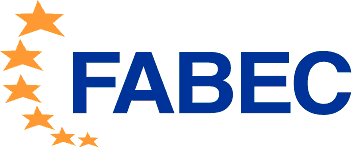First InterFAB Operations Workshop in Langen

On the initiative of FABEC ANSPs, DFS hosted an information exchange between the operations managers of the functional airspace blocks, BALTIC FAB, BLUE MED, DANUBE, FABCE, UK-IRELAND, NEFAB and the SW FAB on 2 and 3 May 2016 in Langen, Germany. The goal of the InterFAB Operations Workshop was to promote the exchange between those who are responsible for operations at the various FABs and ANSPs using concrete examples and issues but without the constraints of a formal framework. Representatives from all FABs discussed current developments and challenges for the coming years based on nine best-practice examples and different presentations. The two-day workshop was divided into sessions on free route airspace, cross-border operations and changing traffic flows. The final session was devoted to opportunities for and limitations to creating benefits.
A diverse range of best-practice examples concerned with the topic of Free Route Airspace clearly showed that enormous progress has been made. Operational solutions exist and rea evolving across Europe. However, limitations to these concepts are apparent, when, for example, military requirements must be taken into account or when capacity in busy airspace is restricted.
One major focus of discussions was cross-border operations. Numerous case studies demonstrated the operational benefit of this type of cooperation. At the same time, implementation is very individual and tailored to regional circumstances. For example, the implementation of cross-border sectors, flexible sectorisation and the beginnings of a common airspace management.
The third session also showed that a one-size-fits-all approach is not adequate. Based on various case studies, the experts discussed the effects that increasingly volatile traffic trends and changing traffic flows have on daily operations. The impact of local developments on the whole network are increasing. This is compounded by the fact that many changes cannot be predicted which means that long-term forecasts are not as valuable as in the past.
During the final panel discussion, participants demanded more realism concerning the discussion topic "Opportunities for and limitations to creating benefits". InterFAB cooperation and cross-border cooperation can provide many positive approaches particularly as there are more and more limits to improving the system as a whole. In light of current excellent operational performance results, an additional question arose as to what extent further improvements make sense from a cost-benefit point of view.
The operational collaboration between air navigation service providers has been growing in importance since the inception of FABs. At the same time, the InterFAB Cooperation has also grown in importance in the last two years in particular. The European Member States formalised the cooperation between the FABs at two conferences held in Amsterdam and Bucharest. During both of these events it became clear that collaboration within and between FABs varies significantly.



.png)

.jpg)





Comments
There are no comments yet for this item
Join the discussion